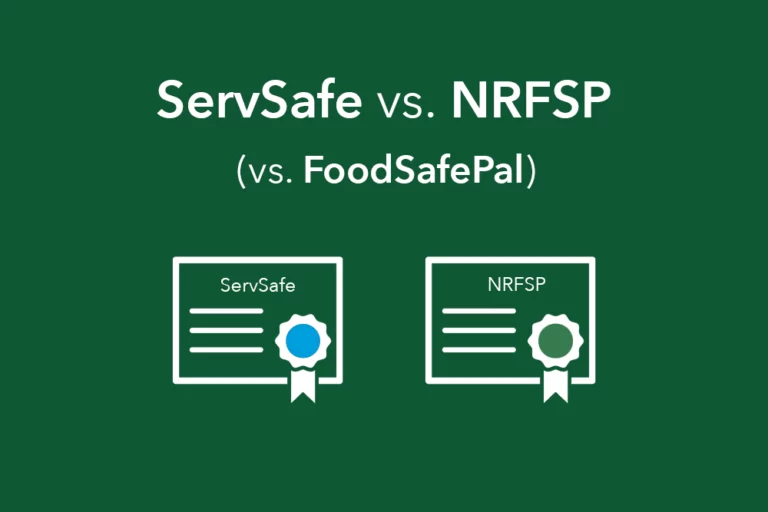California Requires Employer-Paid Food Handler Training
California has long required a food handlers card to work at a food establishment like a restaurant, cafe, cafeteria, bakery, and mobile food unit.
The responsibility of taking and passing an approved food handler course has always been the employee’s responsibility, but many food establishments still cover the costs to enroll.
A new law now shifts this responsibility to the employers by requiring them to pay their staff for all the costs associated with earning a food handlers card.
This article explains everything you need to know about California’s SB 476, which requires employer-paid food handler training, and provides an action plan to ensure compliance with the law.

California’s food handler card requirements
The California Health and Safety Code requires any worker who is involved in food preparation, storage, or handling to earn a food handlers card within 30 days of hire.
Employees must then maintain their food handler card for the duration of employment by retaking and passing an approved food handler course every three years.
An approved food handler course is one that has been accredited by the ANSI-National Accreditation Board (ANAB).
Although many employers cover the costs of this training, they aren’t required to since the food handler training can be a required qualification for the job.
It also belongs to the person who took and passed the course, not the place where they work, meaning they can use it to work at a different place.
Under a new law — SB 476 — however, all the costs and burdens associated with earning a food handlers card now lies with the employer.
This includes the enrollment costs associated with the course itself but also the time required to complete the course and pass the test, which must be paid at the employee’s regular hourly rate.
The time it take to complete a course and test varies by course, but it cannot exceed two-and-a-half-hours.
In San Diego, however, the course must be at least three hours.
The employeer must allow the employee to train and test during normal business hours, and the employee cannot perform other work duties during this time.
Under SB 476, employers cannot require that applicants already possess or earn a food handlers card before being considered for or offered the job.
Summary
California’s SB 476 requires the employer to cover all costs — including both the enrollment fee and time to complete the training and test — associated with its workers earning a food handlers card.
How to prepare as a California food establishment
Whether you’re a small family-owned restaurant or part of a national chain, preparing for the increased costs under California’s SB 476 is crucial.
Here is an action plan to make this transition easier:
- Consider partnering with one ANAB-accredited food handler training provider like FoodSafePal, to ensure consistent training and program costs. Many programs offer steep discounts for group purchases.
- Update existing policies and procedures to include language about your responsibility to cover all costs associated with food handler training for your staff, including whether you have a preferred food handler training provider.
- Update new hire training materials to include required time for employees to train and test.
- Train your managers and persons-in-charge on adjusting schedules, labor allocation, accurate timekeeping, and the requirement to relieve employees from all work duties while training or testing.
The SB 476 requirements will affect multiple parts of your operation, but partnering with a preferred food handler training provider, updating existing policies and procedures, including new hire training materials, and training your managerial staff will allow for a smoother transition.
Summary
To implement California’s SB 476, consider mandating a certain food handler training provider, update existing policies, procedures, and training materials, and train your managerial staff on the law’s specifics.
The bottom line
California has long required food workers to earn an ANAB-accredited food handlers card to work at a food establishment.
The responsibility of taking and passing an approved food handler course has always been the employee’s responsibility, but California’s SB 476 now shifts the responsibility to the employeer by requiring them to pay for the associated costs.
To implement the law’s requirements at your food establishment, consider requiring a specific food handler training provider, update relevant policies, procedures, and training materials, and train your managerial staff on the necessary operational changes.

Need ANAB-Accredited Food Handler Training for Your Staff?
Streamline Your Training at a Discounted Rate






